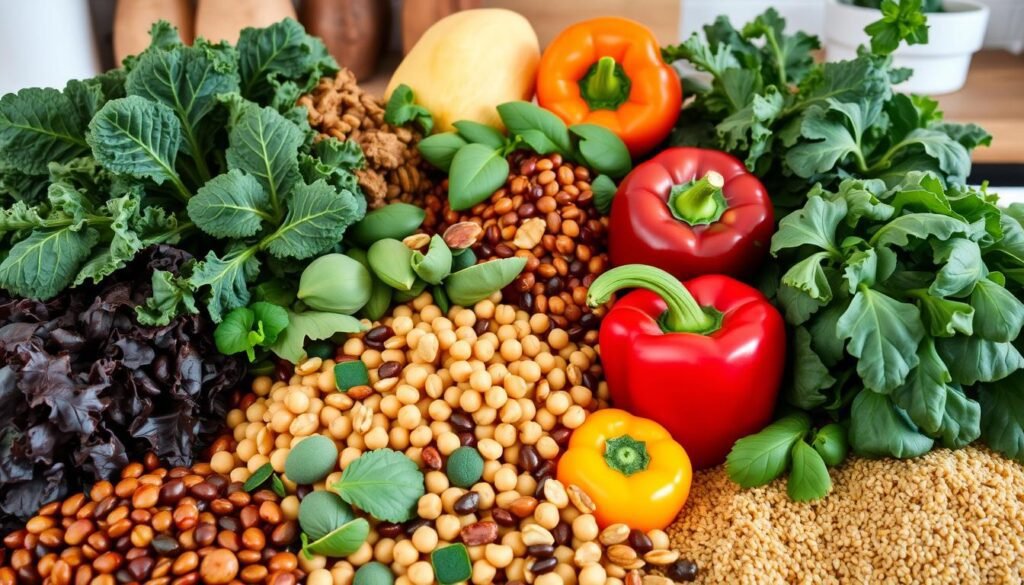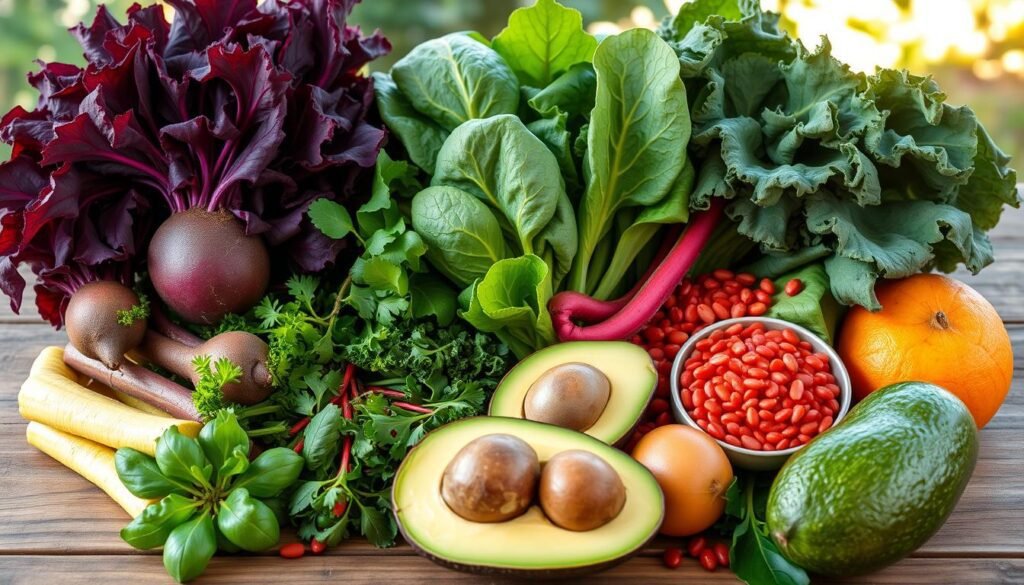Vegetarians and vegans often face difficulty in getting iron in their diet. The body takes in iron from animal sources more easily. Yet, through wise food selections, vegetarians can meet all their iron requirements. This guide is your way to add iron-rich foods to your diet, increase the absorption of iron, and check the status of your iron level.

Understanding Iron Requirements for Vegetarians
Iron is a special concern for the vegetarians. A well-planned vegetarian diet can supply sufficient iron, but the iron from plants is more difficult for the body to utilize. Consequently, vegetarians may have to seek out more iron-rich foods to prevent iron deficiency anemia.
The iron requirement is 8 milligrams (mg) for adult males and 18 mg for adult females. But vegetarians could require as much as 1.8 times more iron. The amount of iron a vegetarian should take also depends on various factors, including:
- Type of vegetarian diet: Lacto-ovo vegetarians (those who eat dairy and eggs) may need less iron than strict vegans.
- Bioavailability of plant-based iron: The body absorbs non-heme iron from plants less well than animals’ heme iron.
- Vitamin C intake: Foods that are high in vitamin C can help the body absorb more non-heme iron.
- Phytic acid and tannins: Some plant foods can contain these compounds which block iron absorption.
Vegetarians can meet their daily iron needs by knowing their special iron needs and eating a variety of iron-rich plant foods. This prevents iron deficiency anemia.
Best Plant-Based Iron Sources for Vegetarians
Iron is a main concern for vegetarians who do not eat flesh. Plants have a lot of foods that are rich in iron. These foods are key to a healthy vegetarian diet.
Lentils, chickpeas, moong beans, and kidney beans are the best sources of iron. They are rich in fiber and folate as well. Legumes added to your meals is a clever way of getting more iron in your diet.
Whole grains including quinoa, fortified cereals, and oats are better sources of iron. They provide energy and can be used for many vegetarian recipes.
Nuts and seeds such as cashew nuts, almonds, pumpkin seeds, and chia seeds are nutritious snacks that have high amounts of iron. Incorporate them into salads, and smoothies, or eat them as a snack.
The juicy and dark green leaves that grow on plants such as spinach, kale, and Swiss chard are full of iron and vitamins. Include them in your stir-fries, salads, or as a side dish.

You can get enough iron by eating lots of different legumes, whole grains, nuts, seeds, and dark greens. This helps you stay healthy and well.
How to Get Enough Iron on a Vegetarian Diet
A vegetarian diet doesn’t have to be hard to get enough iron if you are meal planning correctly. Concentrate on plant-based foods that are iron-rich and pair them wisely for better absorption.
Plan meals first around high-iron foods. Good choices are lentils, spinach, tofu, quinoa, and fortified cereals. These will be the basis of your meals to help you meet your iron needs.
- Add legumes, which are rich in iron, such as lentils, chickpeas, and black beans, to soups, stews, and salads.
- Relish leafy greens such as spinach, kale, and Swiss chard in salads, sauté, and smoothies.
- Incorporate whole grains such as quinoa, brown rice, and fortified cereals in your meals.
- Use tofu, tempeh, and other soy-based proteins as meat alternatives.
Iron absorption can be improved by pairing iron-rich foods with vitamin C-rich foods. For instance, if you have lentils, add tomatoes to them. Or, if you have spinach, add some citrus fruits. In this way, you make the most of iron in your diet.

With a bit of imagination and determination, getting enough iron on a vegetarian diet is easy. Concentrate on iron-rich foods and apply strategies to improve absorption. Thus, the body gets the necessary iron for its overall well-being.
Iron Absorption Enhancers and Inhibitors
Maintaining iron levels on a vegetarian diet is a challenge. Plants contain plenty of iron, but how well your body absorbs it is the point. Understanding what promotes and obstructs iron absorption is critical.
Vitamin C is the main iron booster. Consuming vitamin C-rich foods such as citrus fruits, and leafy greens, strengthens iron absorption. Vitamin C helps your body to use iron better.
However, there are some plant foods that can actually impede the absorption of iron. Whole grains and legumes contain phytates that can stick to iron. Tannins in tea and coffee are also a hindrance. To outsmart these blockers, one can consume a food strictly rich in iron alone or soak and sprout the grains and legumes.
By the way, a diet that includes foods rich in vitamin C alongside iron-rich meals improves iron absorption. Knowing the iron blockers and modifying your diet accordingly are the means you can use to get the most out of plant-based iron sources.
Iron-Fortified Foods and Supplements
Getting enough iron can be a challenge for vegetarians. Fortunately, there are ways to increase iron levels. Foods fortified with iron and supplements are excellent choices.
Breakfast cereals and breads are among many foods that recently have iron added to them. These are vegetables easy to add to a vegetarian diet. Iron supplements for vegetarians are also good if you cannot get enough iron from food.
When selecting iron supplements, pick those that your body absorbs well. Search for ferrous fumarate or ferrous gluconate. Vitamin C can assist in the body absorbing iron from plant sources. Hence eating vitamin C high foods with iron will help too.
Vegetarians can meet their iron needs by eating iron-fortified foods and taking the right supplements. Always consult a physician to discover how much iron you need and which supplements are best for you.
Common Signs of Iron Deficiency
It is tough to maintain iron levels on a plant-based diet, but it’s essential for health. The first step in the battle against iron deficiency is to acknowledge its symptoms. This guarantees that the body has a sufficient amount of iron.
Iron deficiency anemia is mainly indicated by exhaustion and weakness. If you are constantly fatigued, even after a good night’s sleep, low iron might be the cause. Other signs are pale skin, brittle nails, and headaches.
Especially, vegetarians and vegans often find it difficult to acquire enough iron. The shortness of breath, dizziness, or trouble in thinking clearly might be experienced. These symptoms are indeed capable of greatly influencing your day-to-day life. Tackle the problem promptly and with utmost urgency.




